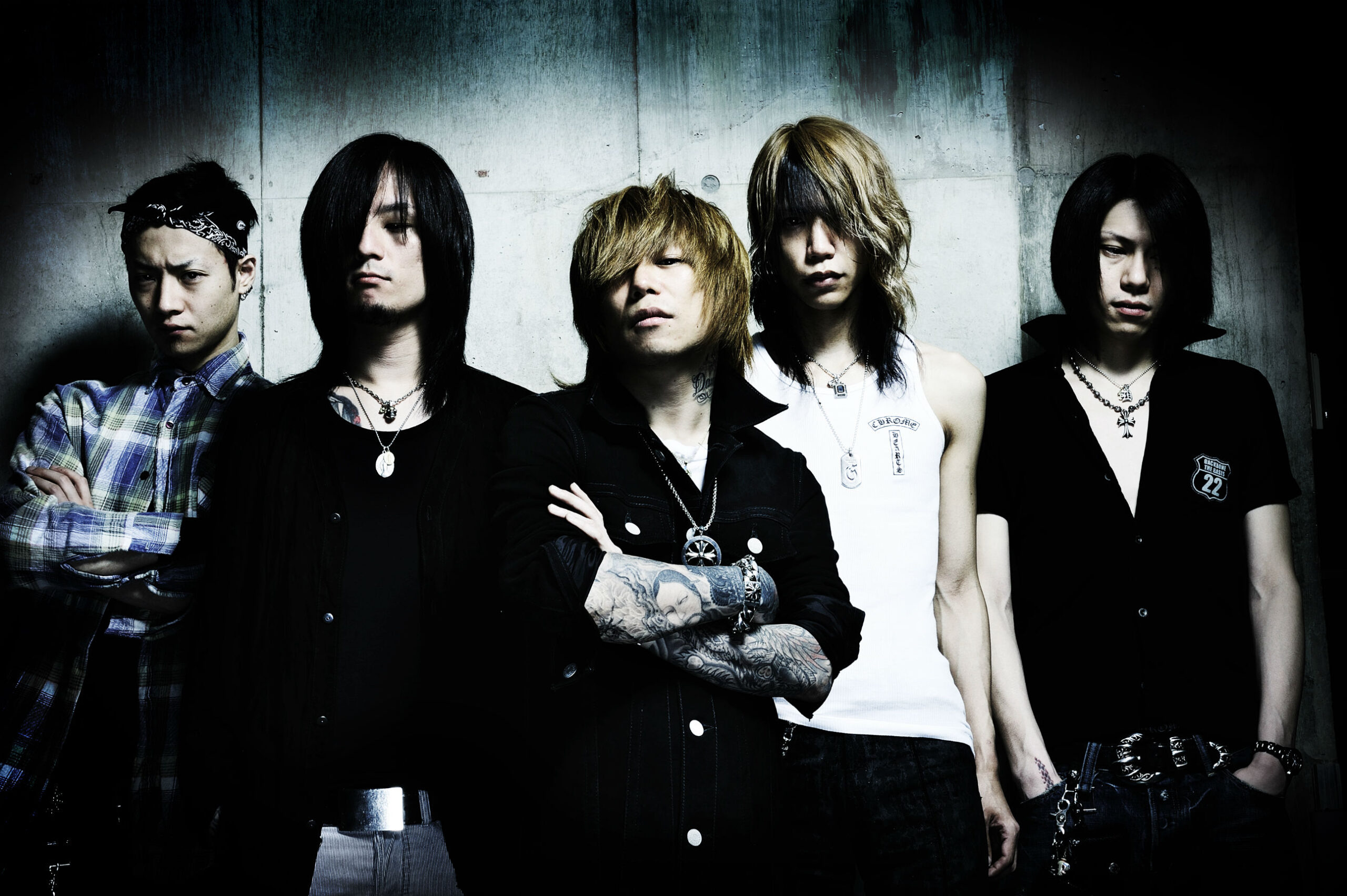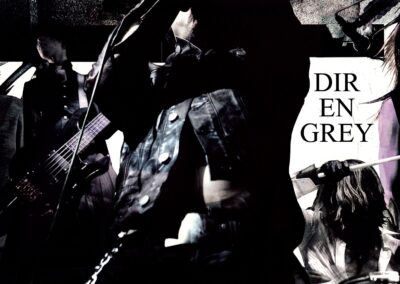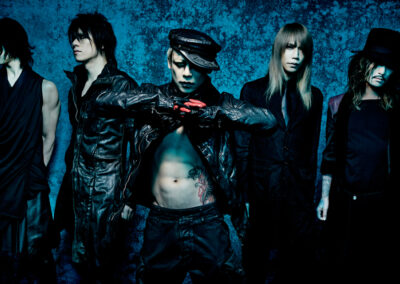Exclusive interview with Kaoru: Unveiling DIR EN GREY’s masterpiece Uroboros, a synesthetic experience.
DIR EN GREY is a Japanese alternative rock/ metal band that emerged in the late 1990s. Formed in 1997, the band quickly gained attention for its unique blend of heavy metal, alternative rock, and experimental elements. Comprised of vocalist Kyo, guitarists Kaoru and Die, bassist Toshiya, and drummer Shinya, DIR EN GREY captivated audiences with their intense and dynamic performances. In the early years, the band released several successful albums, including Gauze (1999) and Macabre (2000), which showcased their dark and aggressive sound. However, it was their 2002 album Kisou that marked a turning point in their musical evolution. With its intricate compositions and introspective lyrics, DIR EN GREY began to explore new territories and experiment with different musical styles. Soon, DIR EN GREY will release their album Uroboros. For the occasion, we met with Kaoru to discuss the new release.
—— How do you feel about this new release?
Kaoru: I am very excited about the new album. I can’t wait for people to listen to it. I wonder how the new music will be received. I am very curious about the level of communication and expression we will achieve, effectively conveying our ideas and emotions. It is my hope that the new album will deeply resonate with our fans, leaving them moved and impacted. I am intrigued by how they will interpret and perceive its meaning.
—— How excited are you during the wait?
Kaoru: I am really looking forward to the album release. I am probably as excited as a fan could be right now. However, my enthusiasm has been dampened by the unfortunate discovery that the album has leaked on the Internet, which significantly diminishes the overall experience. It deeply bothers me. It is both disappointing and discouraging.
—— I totally understand.
How has the music of the band evolved from The Marrow of a Bone to Uroboros?
Kaoru: For this album, we didn’t really want to embark on something completely new or very different from what we had done before. We were more focused on self-acceptance. We wanted to explore our musical heritage acquired over time and pay tribute to it as best as possible. This album contains our past, as much as our present and future. In the end, I think it’s a record that holds an original sound that defies classification.
—— How cool!
I heard there is an oriental atmosphere.
Kaoru: Actually, we tried to bring out through the album the moods and general ambiances that are felt during concerts, the emotions experienced in a live context. At the same time, we also tried to highlight religious tones and atmospheres from a Japanese perspective. I think, the album emanates an oriental ambiance, reflecting our Japanese-selves.
—— The uroboros has been important in religious symbolism.
Kaoru: Definitely. That can be felt in the atmosphere of the album.
—— Did you incorporate any new instruments?
Kaoru: Yes, we did. On several songs, we used an electric zither, which brings something new and quite interesting, although the essence of the songs we were aiming for primarily revolves around guitars. For example, we used various objects to scrape and play the guitar strings. On few tracks, we also tried recording the sound of the guitars directly from the amplifier. In the end, it was a unique and really fun experience. On the album, Shinya even played congas.
—— Great!
You used different languages, didn’t you?
Kaoru: Indeed. ‘Sa Bir’ means ‘movement of the Earth’ in Tibetan. And ‘Vinushka’ is a made-up word of Russian origin that is used to refer to elements related to sin.
—— The uroboros depicts a serpent or dragon biting its own tail, representing cyclical evolution and self-regeneration. Is it a symbolic title for DIR EN GREY?
Kaoru: Exactly, it is a symbolic title for the band. The album revolves around the concept of the infinite cycle of time, encompassing the alternating phases of life, death and rebirth. It intricately weaves together elements from our past, present and future. And, as I mentioned earlier, this album contains our past, as much as our present and future. In a way, there is an analogy between the album’s name and our journey. The uroboros is good reflection of that eternal cycle.
—— Very interesting.
Why did you choose The End of Records for the US release?
Kaoru: We were looking for a label in the United States. Several record companies contacted us but The End of Records seemed to be the best choice for the band.
—— Were you pressured to sing in English?
Kaoru: The more they pressure us, the more we push back.
—— Why did you rewrite ‘Glass Skin’ and ‘Dozing Green’ in English?
Kaoru: We had already released those songs in Japanese, we just wanted to try reworking them with English lyrics. The results were quite satisfying, so we decided to include all versions on the album.
—— To celebrate your 10th anniversary, two best-of albums were released last year: Decade [1998-2002] and Decade [2003-2007]. Does Uroboros mark a third era?
Kaoru: To be completely honest, we haven’t really thought about it. I’ve never delved into a proper retrospective analysis of the band’s evolution. When I engage in the process of composing music, my focus is solely on the present. I immerse myself in the current moment, attentively observing and channeling my emotions into music as I write. However, I believe that from an external perspective, that is generally true. It’s a good ovservation.
—— You mentioned that people will visualize scenes while listening, do you mean experiencing synesthesia?
Kaoru: In a way, yes. When listening to the album, I would like each person to create their own experience. I would like the listeners to be carried away by the music. I want the music to lead them to visualize scenes, perceive colors, and experience emotions in response to the sounds. I would like each person to have a certain intimacy with the album, connected to their own personal experiences. I really want to emphasize the uniqueness of it. I’m sure everyone can find something that resonates with them.
—— Did you have these kinds of visions during the creation process?
Kaoru: I didn’t have any real visions, at least nothing too specific. But, I can picture how great it will sound live. I have a strong belief that this album will truly come alive in a live setting. I can envision the stage setup that will perfectly complement the music. When I see images in my head, it’s mostly ones of live performances rather than abstract pictures and concepts.
—— The artwork of the album is mystical, epic.
What is its visual concept?
Kaoru: Thank you. When it was time for the band to work on the design and artwork of the album, we had the idea of using text instead of an image. So, I showed them the cover of the album Lizard from the band King Crimson. They were all excited about it. It was unanimously agreed upon, and we built upon that visual concept, adding our own visual identity to it.
—— And who is the artist behind it?
Kaoru: His name is yo~da. He is an artist we have been working with for quite a few years.
—— Does the visual aesthetic of the band hold as much importance as the music?
Kaoru: We believe that the identity of the band is the most important thing, and that includes the visual aesthetic. If everything we create is neutral or transparent, it becomes meaningless. We strive to build a universe that is our own and unique, so we spend a lot of time on the realization of our visuals.
—— In the future, do you think you will eventually start a side project?
Kaoru: I will consider it when the time comes.
—— You have recorded acoustic versions of several songs.
Will you plan an unplugged show?
Kaoru: We are currently doing planning one.
—— Will a European tour be announced soon?
Kaoru: Just be a little more patient, you won’t be disappointed.
—— Any last words?
Kaoru: Rest assured, we will come to see you next year for our new tour. Until then, please continue to support us.
__________________
Mandah FRÉNOT
(c) VMJ




